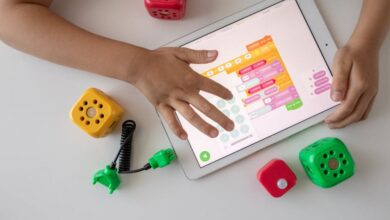How to Pick Puzzle Games for Family Education
Puzzle games have become a popular choice for family education, serving as both a source of entertainment and a powerful tool for learning. These games not only engage players but also foster critical thinking, problem-solving, and collaboration among family members. However, with so many options available, choosing the right puzzle game can feel overwhelming. Here’s how to make an informed decision that benefits your family’s educational goals.
Understanding Your Family’s Learning Goals
Before diving into the world of puzzle games, it’s essential to identify your family’s learning objectives. Are you looking to improve math skills, enhance vocabulary, or develop spatial awareness? Different puzzles cater to various educational needs. For instance, math-based puzzles like Sudoku can sharpen numerical skills, while word puzzles such as crosswords or word searches can expand vocabulary and spelling. By clarifying your goals, you can narrow down your choices to those that align with your educational aspirations.
Assessing Age Appropriateness
When selecting puzzle games, consider the ages of your family members. A game suitable for teenagers may be too complex for younger children. Look for games that offer varying difficulty levels or adjustable settings. Many online platforms provide age filters to help you find appropriate options. Additionally, consider games that encourage teamwork, enabling older siblings to assist younger ones, fostering a sense of unity and support.
Evaluating Educational Value
Not all puzzle games are created equal when it comes to educational content. Spend some time researching the game’s background to ensure it offers solid educational benefits. Look for games that have been developed by educators or endorsed by educational institutions. Reviews and ratings can also provide insight into the game’s effectiveness. Focus on games that challenge players to think critically and apply their knowledge rather than those that merely entertain without substantial learning opportunities.
Exploring Different Formats
Puzzle games come in various formats, including board games, card games, and digital apps. Each format offers distinct advantages. Board games encourage face-to-face interaction, which can enhance social skills and family bonding. Card games are portable and often easy to set up, making them perfect for travel or family gatherings. Digital apps can provide a vast array of puzzles and instant feedback, though they may lack some of the interpersonal benefits of physical games. Consider your family’s preferences and lifestyle when choosing a format to ensure a greater likelihood of engagement.
Encouraging Collaboration and Competition
Puzzles can be played individually or in groups, but involving multiple family members often leads to richer learning experiences. Look for games that encourage collaboration, where family members can work together to solve challenges. Cooperative puzzle games help build teamwork skills and foster communication. Alternatively, some games introduce a competitive element, which can motivate players to improve their skills. Balancing collaboration with healthy competition can lead to an engaging and educational experience for everyone involved.
Testing the Waters
If possible, test out different puzzle games before committing to a purchase. Many game stores offer demo versions or allow you to play in-store. Additionally, explore free online versions of popular puzzles that can give you a taste of what the game offers. This hands-on approach allows you to gauge your family’s interest and suitability, ultimately leading to a more satisfying selection.
Incorporating Feedback and Adjustments
Once you’ve selected a puzzle game, be open to feedback from family members. Encourage them to share their thoughts on the game’s educational value and enjoyment. If a particular game doesn’t resonate, don’t hesitate to explore alternatives. The key is to maintain an open dialogue and adjust your choices based on your family’s evolving interests and learning needs.
Finding the Right Balance
Choosing puzzle games for family education is about striking the right balance between fun and learning. The joy of playing together can turn an educational experience into a cherished family memory. By keeping your family’s goals, preferences, and feedback in mind, you can select puzzle games that not only challenge minds but also bring everyone closer together. Embrace the journey of discovery, and watch as your family learns and grows through the power of puzzles.







